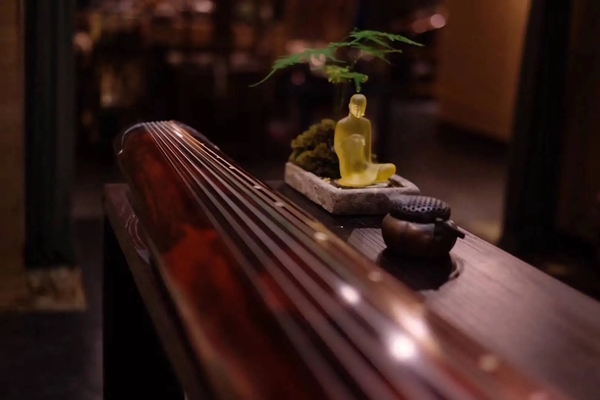What aspects should be paid attention to when learning a new guqin piece
What should I pay attention to when learning a guqin piece? Where to learn from? To learn a new piece of piano music, you must go through the following aspects of learning.

1. Discrimination
Before learning a qin piece, you must first understand the meaning and mood expressed by the piece. That is to say, what does the song describe and what is the meaning of the song. If the author of this qin piece is clear, you must first understand the author's life, the background of the era, and the relevant political, cultural, life and other characteristics of the background of this era. After you have a certain understanding of the author, you may wish to think carefully from the author's point of view, so as to be closer to the original author's intention. If the author is unknown, you should also carefully study the solution of the qin music, so that you can know it. Only after you understand the meaning of the song, can you focus on learning, and not just aimlessly.
2. Setting the tone
Before learning qin music, you must first find out in which key is the qin music played, is it in the positive key? Or tight feathers? Still clear business and so on.
Third, the Ming faction
Guqin has many factions, and each faction is brilliant and different, which is a major feature of Guqin. However, different factions have different ways of expressing them. Think about it, if the Chuan School's handing down of the music used the Guangling School's playing technique, it would be very different from each other. Therefore, when we are learning a new qin piece, we must first figure out what type of music this music is, and then we should uphold the style of this type, strictly abide by its fingering, follow his words, follow his essentials, and put The characteristics and charm of this faction are shown, so that it can be perfect.
4. Use your finger
There are fingerings in the front of most of the qin and book scores of each school. There are small differences in these fingerings, and these small differences are precisely the unique styles of each school. Therefore, if you want to play a certain style of piano music, you must first figure out the fingering of this style and master it proficiently. Then use the fingerings of this faction to play the piano music of this faction, so that the sound can be followed by the words, and it is handy. Otherwise, the music of any genre will be played into one flavor, and the original meaning of its performance will be lost. Therefore, strict fingering is the first thing that should be paid attention to when learning a qin piece.
Five, hone
When learning a new song, it is very important to play the sound accurately and play the rhythm correctly. You can’t ask for too much when you study. You can take the phrase as a unit. After you learn a phrase, you can move on to the next sentence. At this stage, you need to be accurate. Only when you play it accurately can you lay a solid foundation for the next practice.
Learning to play a qin piece is just the beginning and requires repeated practice. You have just finished learning a new song, so don’t be quick when you practice, don’t play the whole song from beginning to end. You can repeat the practice in paragraphs. When encountering a particularly difficult place, you need to extract these phrases, calm down and practice it dozens of times and a hundred times, and you can naturally practice makes perfect. After the practice is accurate and proficient, and you know the whole song, you can practice the whole song. In addition, after a period of time, you must do the homework of "familiar music and play". It means to treat the already practiced qin tunes as if they were newly learned tunes, and then study them carefully by looking at the score. The advantage of this is that errors can be avoided as much as possible. In addition, "cooked score and play" is also suitable for the inspection of qin music after many years to see if there is a phenomenon of missing words or sentences over time. All in all, in order to play a qin piece well, it must be practiced diligently and pondered over and over again. Only in this way can the performance of the heart and the hand be matched and the performance can be achieved at will.
Six, express
Those who express the meaning of qin music can understand it but cannot express it in words. What is certain, however, is that achieving this is based on a huge amount of practice. Music is like a language, and the qin is a tool to express this musical language. To express the emotion and meaning of a qin piece through the guqin, it is like speaking, sometimes gentle, sometimes passionate, sometimes soft, and sometimes sonorous. Thinking, thinking in the heart, so as to achieve the realm of expressing the spirit and expressing the meaning.
 渝公网安备 50010702504639号
渝公网安备 50010702504639号